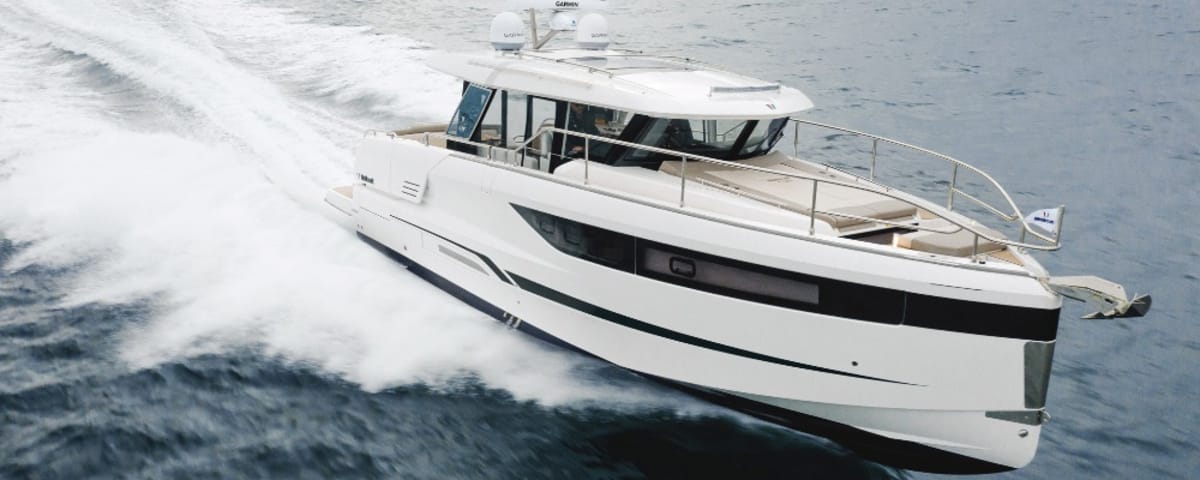Swimming from Your Boat: What You Need to Know
For many boaters, a swim around the boat is a natural part of the experience, especially when anchored in a seemingly isolated and peaceful spot. The temptation to jump into the water without thinking is strong, believing that away from the beach and its lifeguards, anything is allowed.
However, this impression of freedom does not reflect reality. In French waters, as elsewhere in Europe, swimming from a ship or boat is subject to specific rules. Pleasure boating does not give you a free pass to swim wherever you want, even outside supervised areas.
Often Overlooked Prohibitions
Some areas strictly prohibit swimming, even for boat occupants. These prohibitions primarily aim to ensure safety and the smooth flow of maritime traffic.
Affected areas include:
- Access channels to ports: These are exclusively reserved for navigation and prohibited for swimming, even in the absence of traffic.
- The interior and immediate surroundings of ports: In most cases, a municipal or prefectural decree prohibits swimming in basins, around quays, and near breakwaters.
- Military or industrial zones: Certain sections of the coastline are classified as “prohibited zones” or “dangerous zones” for reasons of national security or sensitive activities.
- Certain protected natural areas: Swimming is restricted or prohibited to protect the fauna and flora.
In some very touristy regions, specific decrees also prohibit swimming in coves or bays deemed dangerous or too frequented by ships.
When in doubt, consulting the official nautical chart can prevent many problems.
The Captain’s Key Role Onboard
On a boat, the captain (or skipper) is responsible for everyone’s safety. This includes people swimming around the boat, even at anchor.
The captain’s responsibility may be engaged in the event of an accident, in particular:
- If the swimming takes place in a prohibited area.
- If the safety conditions are not sufficient (unstable anchorage, strong current, nearby maritime traffic, etc.).
- If a person accidentally falls into the water without supervision.
Maritime law also requires the captain to ensure that swimming does not interfere with the movement of other ships.
Failure to comply with the prohibitions can result in penalties ranging from a simple fine to criminal prosecution in the event of an accident. The fixed fine can reach several hundred euros, depending on the local decree violated.
In the event of a collision with another ship or a serious accident, the legal consequences can be severe. The captain may be prosecuted for endangering others or negligence.
Essential Precautions for Safe Swimming
When no prohibition applies, swimming around the boat remains possible, but some precautions are necessary:
- Check the water depth before diving: Rocks or shoals are sometimes invisible from the surface.
- Always leave someone on board to supervise the swimming.
- Use the Alpha (A) flag when underwater diving is in progress: this blue and white flag signals diving activity and requires other ships to reduce their speed and move away.
- Install a ladder or a safe way to get back on board.
- Beware of currents and eddies caused by other boats: passing too close to a large ship can quickly drift a swimmer.
Special Cases: Scuba Diving and Freediving
In the case of scuba diving (with tanks) or freediving, the regulations become stricter. The Alpha flag must be raised as soon as divers are operating around the boat.
In addition, some areas require specific authorization for diving, particularly in marine natural parks or reserves.
The captain must also ensure that divers have adequate safety equipment, in accordance with regulations.
Diving from your boat is a pleasant activity, but it requires a minimum of vigilance and respect for the rules. The sea is not a lawless space, even at a good distance from the coast. Before each swim, it is best to check the local rules and keep in mind that safety takes precedence over the temptation of an impromptu dive.
Respecting these rules means avoiding accidents, fines, but also preserving harmony between boaters and other sea users.
Enjoyed this post by Thibault Helle? Subscribe for more insights and updates straight from the source.


